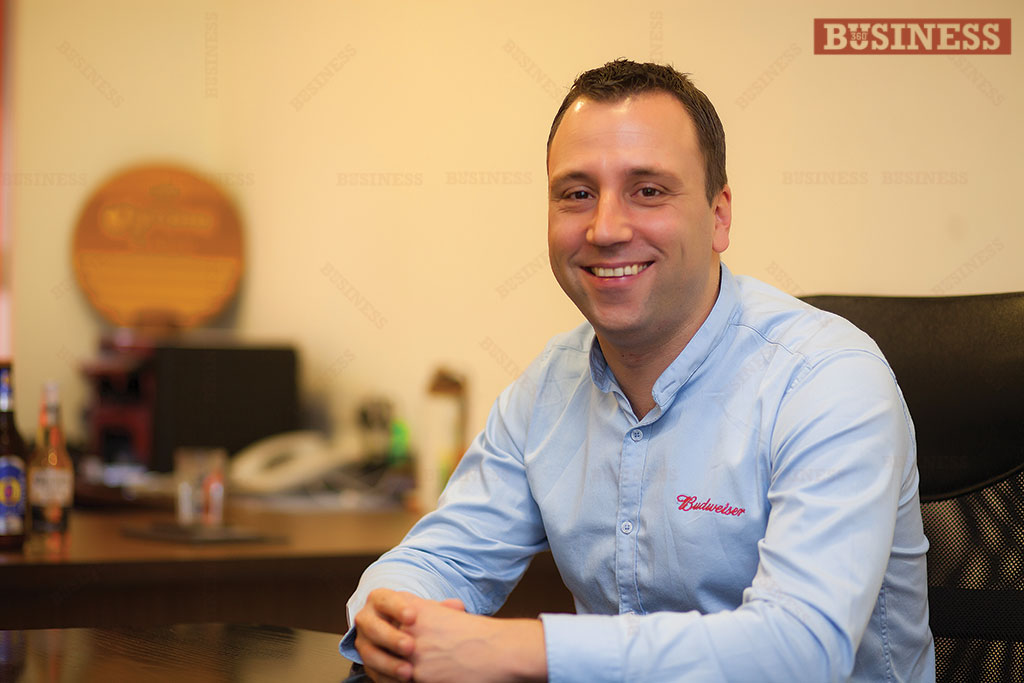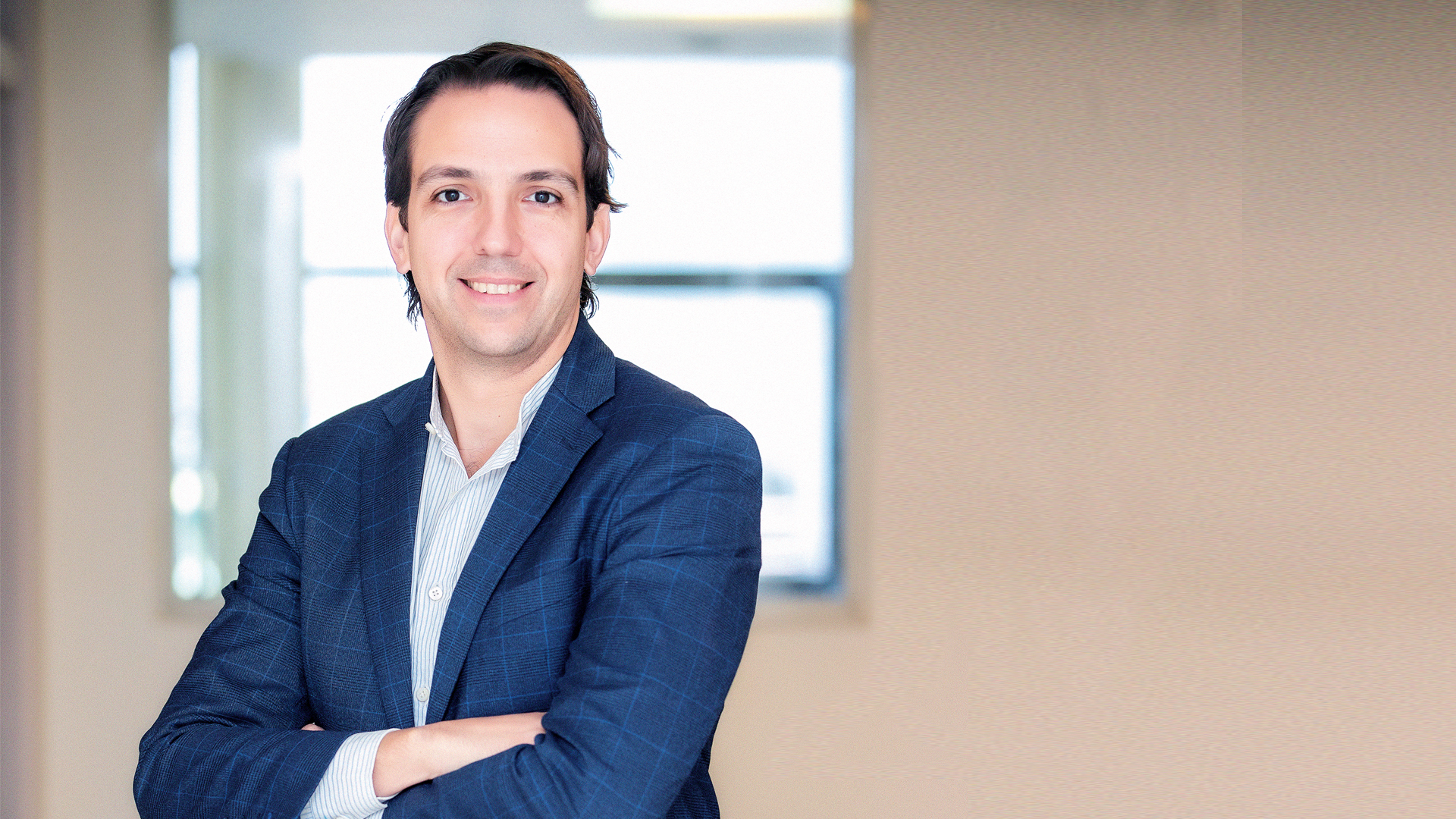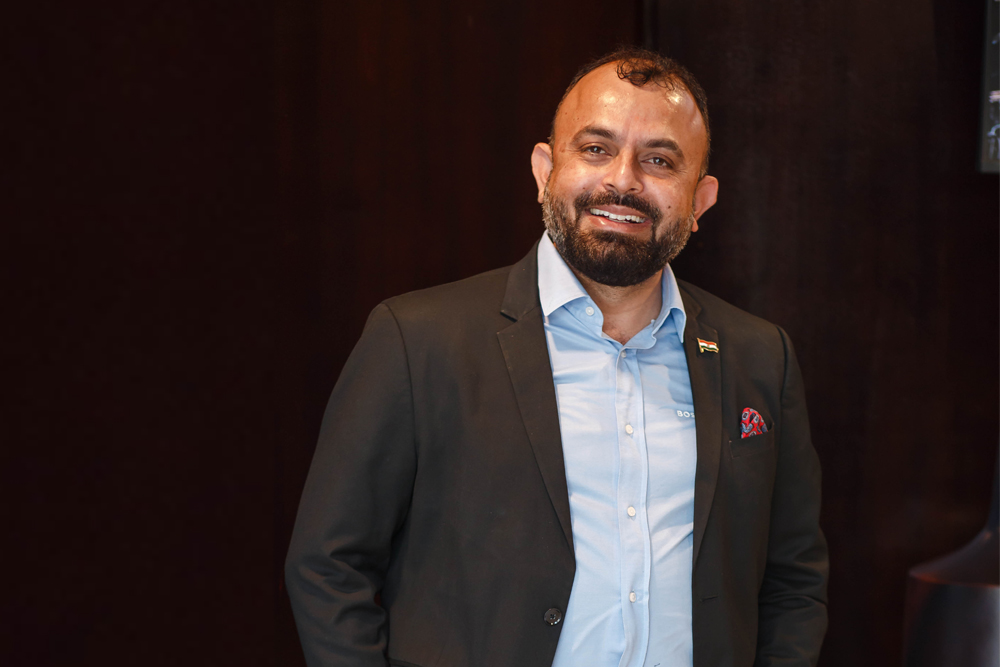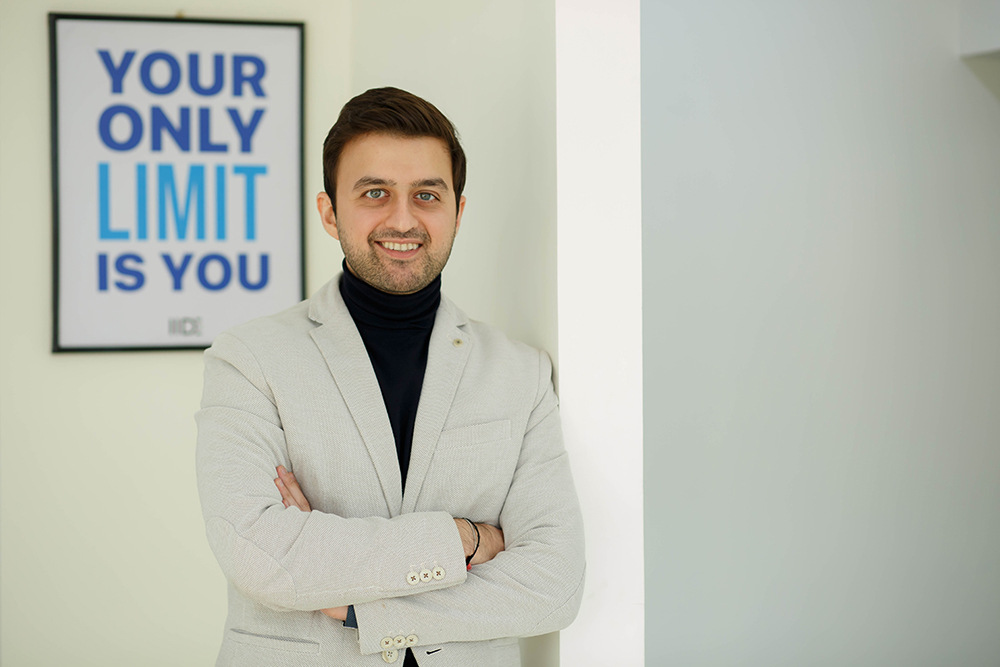
Wouter Peeters
VP - Strategy and New Business Development, AB InBev, South Asia
Wouter Peeters is the VP - Strategy and New Business Development at Anheuser-Busch InBev (AB InBev) for South Asia. AB InBev is a multinational beverage and brewing company based in Belgium. Peeters started his career in the breweries in his home country, Belgium and has 13 years of experience in the industry working in Belgium, UK and Hungry. He is currently stationed in India overlooking the South Asian markets.
B360’s Avant Shrestha caught up with Peeters on his visit to Nepal to talk about ABInBev partnership with Jawalakhel Group of Industries (JGI) and the future of beer in Nepal. Excerpts
Tell us about your role as VP of Strategy and New Business Development in South Asia.
I’ve been working in South Asia, well, India for the past four years as the VP for Strategy and New Business. What does that mean for South Asia is that we develop the strategic piece of how we are going to develop the business in the next three to 10 years. The strategic part of our work is that we always aim to establish a long-term plan and how we move the business in such manner. We also aim to develop the business to be beneficial for us as a company and for the consumers as well.
The new business development part of our work here in South Asia launching new products in India and in Nepal is basically our partnership with JGI.
You have work experience in both Europe and South Asia; how are the two regions different in terms of work culture?
I look at the working culture differently. Obviously, every country you work in is different. But is there a real difference in working culture? I wouldn’t say so. Because we have a very strong company culture. We have a great company culture that shares the same values across borders. As a result, for me to move around different countries is pretty easy.
But if I have to talk about the regions working culture wise, I feel people in South Asia, not only India, are very hungry for success. I appreciate it because people here want to grow things and there is the fact that they are not afraid to take risks, because people everywhere try to take risks to grow their own life.
What about the bulging beer portfolio and the brewing culture?
Brewing culture…. As a Belgian it’s interesting and of course, I started my career in the breweries. We have a long beer heritage abroad which we don’t have yet here in Nepal. But I observe that it’s coming up, and that’s why we have formed this partnership with JGI. They have a state-of-the-art brewery.
The growth of the beer segment is evidently progressing year on year across not only in Nepal but South Asia in general. Why? Because more and more people have become aware of the brands and the amount of choices they have, and lastly consumers have connected with international brands.
Could you tell us about ABInBev’s partnership with JGI?
So basically when we were looking at the markets in South Asia, we were looking into Nepal as well. Because Nepal is a very attractive market with a thriving young population and growing economy. Prior to this, we were not present in the market and we were just importing on a very small scale, and that’s about it. So, while drafting our strategic planning exercise, we were aware that Nepal is a market where we needed to be in, and with our brand portfolio we needed to start our business here.
We then started looking for local partner. We were searching for world class brewers because we only have world class and the highest quality premium brands, and JGI was the obvious partner for us.
JGI became the right partner for two reasons: First of all, they are the market leader in the spirits industry, so they know the alcohol industry. The second part, which for us is crucial, and it’s basically step number one, they have a state-of-the-art brewery. Because before we step into any deal, if you want to start producing local, step number one is quality, which is the brewery. If that is good, only then we go to commercial.
In all honesty, we are super happy to work with JGI. It is really a great fit. I think there’s a lot of trust as well between both parties. It’s a great partnership as we do everything in collaboration and with this we have huge expectations that our product will be well received in the Nepali market.
How important is the Nepali market for ABInBev?
Initially, we were focused only in India before we came into Nepal as India is a huge market with 1.3 billion population. But now we have started looking outside. To answer the question, we consider Nepal as a very important market as well. I think in Nepal the market of 2 to 3 million people shows signs that the business is growing very fast over the past year. We have observed more people moving towards beer as their preferred choice of beverage. Nepal is going to be a very important market in the future for us. Based on our internal projections, we see this becoming a key market in South Asia. I am very happy to say we signed a long multi-year deal with our local partner because we really believe in this and we are ready to invest in the market to make the brands stand out in the future.
Nepal is dominated by just a few players in the beer market, how do you see Budweiser becoming a household name?
I think it is a very good question. I think Budweiser is the 24th most valuable brand in the world. To say the least, it’s a pretty big brand with a global presence so I think Budweiser can become a household brand in Nepal as well.
How do we plan to do this? Well, first of all, we will play the premium industry. Budweiser is a premium brand. And we aim to focus on assets that other brands do not. We are really very highly focused on high energy assets like EDM (electronic dance music) as we have got amazing assets like ‘Bud X’, host pop up events, and invite famous international artists as well. Plus, as I have observed the nightlife scene in Nepal compared to other Asian or South Asian markets is mind-blowing. It is very well established and high energy that is why I really believed high energy brands or super premium brands which can give consumers more options has the potential to develop the industry even more. Budweiser is involved in football. We were the official sponsor of the leagues: ‘Premier League’, ‘La Liga’ and ‘the World Cup’.
The combination of our ‘winning liquid’ which is the beer, assets in EDM and football and the growing Nepali market - we believe we have the right recipe for success. However, we are well aware of the challenges and well aware that this will take time. We cannot do this in one day. We need to be patient and build the brand the right way.
Lastly, if you look at our portfolio, it is not only Budweiser, we have Fosters Strong in the value segment, Foster’s Lager in the premium segment, and other international brands like Corona in the super premium segment. We come with a portfolio to offer the consumers more choices.
What kind of challenges you face every day?
Challenges I see as opportunities, but of course there are still challenges. The most pressing challenge is that there’s more and more competition coming up, but honestly I also think it’s good. We’re all going for the same goal to drive the culture and drive our brands forward. Plus, I think in South Asia, there is more opportunity than challenges as the markets are growing; it’s fast moving; the young people are very open to try new stuff and they are not stuck with one brand all their life and they want to try different things. That’s my take on it. And that’s why I’m so happy to work inside Asia to build the strategic piece of the new business because that’s what is going to work in the years to come.



.jpg)


